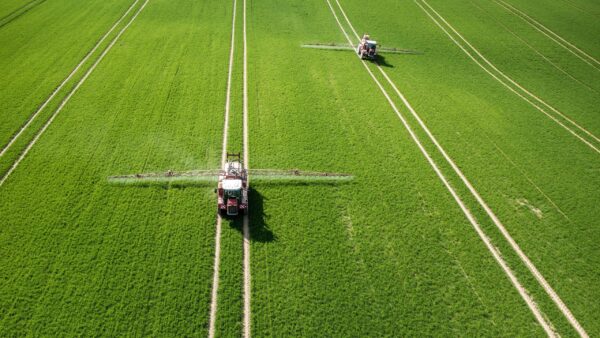When it comes to innovation in the area of biotechnology, few voices carry as much weight as Norm Sissons, a seasoned veteran with over two decades of experience in the seed trade across Canada, the U.S. and Europe. His journey has been intertwined with the evolution of genetic engineering, witnessing the advent of GMOs and marker-assisted breeding, and now, he stands at the forefront of the gene editing revolution in his role as senior VP of seed and traits for Cibus based in Winnipeg.
“I’ve been fortunate enough to be part of GMOs coming to market, but also the use of marker-assisted breeding and different crops, whether it be canola, soybean, or vegetable seed,” Sissons says. “Seeing a lot of technology come into the market and improve the products available to growers around the world has been a fun ride.”
Cibus is an agricultural technology company specializing in proprietary gene editing, and Sissons is on a mission to revolutionize the industry. Cibus focuses on developing traits for growers to tackle production challenges through productivity enhancements, leveraging high-throughput gene editing technology for precision and efficiency.
Sissons emphasizes the pivotal role of collaboration in driving innovation forward in this area.
“Collaboration is absolutely essential in our field. Unlike the straightforward process of GMOs, where you insert an event and pass it along, gene editing demands close partnerships. We work hand in hand with partners, leveraging their elite germplasm and sometimes tailoring traits directly to their needs,” Sissons says.
“These collaborations are pivotal. Additionally, our focus on sustainable ingredients often involves working with downstream players interested in specific products. Through gene editing, we can create tailored solutions and integrate them into crops, fostering a sustainable agricultural ecosystem.”
One of the significant milestones in the journey of gene editing in agriculture has been the regulatory landscape. Sissons underscores the importance of recent regulatory developments, particularly the guidance issued by the Canadian Food Inspection Agency (CFIA), which aligns the regulation of gene-edited products with conventional plant breeding.
“The recent regulatory developments, particularly the stance taken by CFIA, are truly promising for our company and the entire industry. CFIA’s decision to regulate based on the product rather than the process aligns with the core principles of the Canadian system, which is highly regarded worldwide. This shift provides much-needed clarity and stability, setting a solid foundation for consistent regulation,” he says.
Moreover, we’ve witnessed other jurisdictions, such as the EU, making significant strides in the same direction. The EU’s progress reflects a growing global consensus on the regulatory approach to gene editing, Sissons says. With clear paths outlined and ongoing negotiations, he anticipates further alignment with established frameworks.
“This convergence between regulatory bodies in Canada, the U.S., and the EU establishes a robust and harmonized regulatory framework for gene editing. It instills confidence in investors, facilitates innovation, and fosters a conducive environment for the responsible advancement of agricultural biotechnology.”
Looking ahead, Sissons sees a bright future for gene editing in Canada and beyond. With regulatory clarity paving the way for increased investment and participation, he anticipates rapid advancements in agricultural innovation.
“As I think about the future in the next few decades, we’re just scratching the surface,” Sissons predicts. “It’s about how we can create gene editing as a true breeding tool that’s incorporated into breeding programs to increase genetic gain and create products much faster.”
Gene editing holds the promise of accelerating the pace of agricultural progress, from enhancing yield and productivity to addressing sustainability challenges, he adds. Sissons envisions a future where gene editing becomes an indispensable tool in the agricultural toolkit, driving continuous innovation and transformation.












